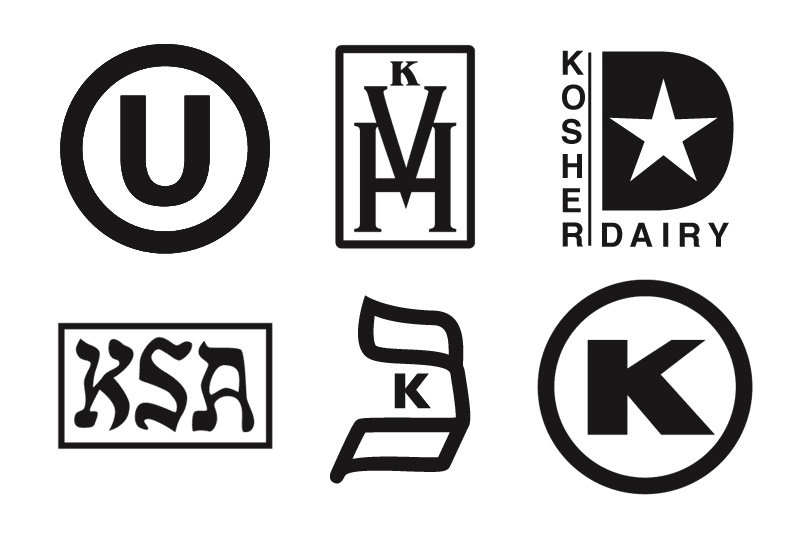There is the forbidden, there is the given, the meek, and the powerful, sustenance all the same. Biblically, the laws of kashrut were rather explicit, has scales, no kids in mothers’ milk, cloven hooves, well, there is a debate. How does it eat? The kosher laws were crafted initially as a code of conduct not for morality as we see it now, but about purity, cleanliness, safety. Keeping us alive. Little was known almost 6,000 years ago about pathogens other than pigs in slop are not to be butchered and eaten. Trichinosis was widely known by the Egyptians as mummified remains had larvae enshrined with the bodies of the great ruling class, but wasn’t well documented until 1835 by Paget & Owen. Another 25 years had to pass before scientists could
Topics:
Michael Smith considers the following as important: Education, food, Hot Topics, World News
This could be interesting, too:
NewDealdemocrat writes JOLTS revisions from Yesterday’s Report
Joel Eissenberg writes No Invading Allies Act
NewDealdemocrat writes January JOLTS report: monthly increases, but significant downward revisions to 2024
Joel Eissenberg writes RFK Jr. blames the victims
There is the forbidden, there is the given, the meek, and the powerful, sustenance all the same. Biblically, the laws of kashrut were rather explicit, has scales, no kids in mothers’ milk, cloven hooves, well, there is a debate. How does it eat? The kosher laws were crafted initially as a code of conduct not for morality as we see it now, but about purity, cleanliness, safety. Keeping us alive.

Little was known almost 6,000 years ago about pathogens other than pigs in slop are not to be butchered and eaten. Trichinosis was widely known by the Egyptians as mummified remains had larvae enshrined with the bodies of the great ruling class, but wasn’t well documented until 1835 by Paget & Owen. Another 25 years had to pass before scientists could identify the source, yet the Israelites had identified these issues more than 5,000 years ago.
A translation of the word kosher is fit, clean. Kasher is to make clean or fit, and describes the process of how to clean food to make kosher to ingest, specifically meats. Vegetables by definition are kosher, seafood is classified with meats, as are birds. Dairy also has special consideration since it is treated as both a primary source of nutrition as is as well as an ingredient to cook things in, or as an additive to many dishes. There are many mechanisms for kashering and also verifying the cleanliness of the food that is about to be ingested, along with the dishes and flatware used. We boil the dishes, don’t eat unclean meats, and don’t mix dairy and meat, as per the laws of antiquity. That last one is more an ethical standard; the milk of the mother being used to cook either the cow herself or her calf is a bit disrespectful, if taken literally.

Judaism has taken two approaches to the scientific revolution. On one spectrum, there was a doubling down on proof of animal welfare, glatt kosher. Glatt means smooth, and is a term used to describe the postmortem inspection of a feed animals’ lungs. On the opposite end, well let’s just say we eat bacon without remorse, knowing that trichinosis, E. coli, salmonella, and other food borne pathogens we know can be inoculated by properly cooking, but also raising an animal in basic standards of cleanliness. We don’t need a post mortem, thankfully, in the United States to know if an animal is fit for consumption, we have to trust the growers and processors with their balance sheets, insurance and reputations that they aren’t loading sick animals into the food supply. There are shining examples of where the USDA inspected facilities help keep the nasty out for the most part and the CDC putting a lid on salmonella outbreaks as soon as one decides to rear is head.
So when did kosher become mainstream synonymous with ethicality by the goyim (non-Jewish folk)? We have to go back a few years and look at Women’s Health magazine, circa 2018, where kosher documented sales of meats had gone beyond just meats… in 2016 kosher was now mainstream for quality and ethically available goods. But back then I had to ask, where are they getting the wheat for the matzah? Same place Mrs. Baird’s gets bread flour. Where are the Shochets (kosher butcher) getting the beef to process? Same place as Cargill, a rancher. We sustain nonetheless; the paths diverged into a yellow wood, around the autumn grove to meet yet as a common path further into the setting and again rising sun. The general public in their lack of understanding mentally transmogrified kosher to be synonymous with superior based on an implied ethical basis that kosher halakhah had something morally elevating in it’s a deeper meaning, and the stepped-up price tag never lies. Kosher has become a fifty-dollar word thrown around at dinner parties in the same manner as organic.
Ethical considerations were applied Tamudically as a relationship to the commandments on man to respect the animals of the Earth, much of which we have largely ignored since the dawn of time. So when people think kosher is somehow better and that as the Shochets sharp knife cuts deeper over and over again at an animal’s neck until it bleeds out and the brain goes hypoxic, I tend to think, is the pneumatic cranial bolt used in modern ag worse or better? Ethics were not the only point of the early laws, kosher is about respect, kasher to keeping clean, basic survival of this generation and the next, and the others following.
Torah, Bible, Q’uran, Veda, whatever you study, the whole point of any theology:
Be good to one another, and to this Earth. We only have one.
To distant Ashkenazi family in Ukraine: להתפלל לחופש
Shabbat shalom
